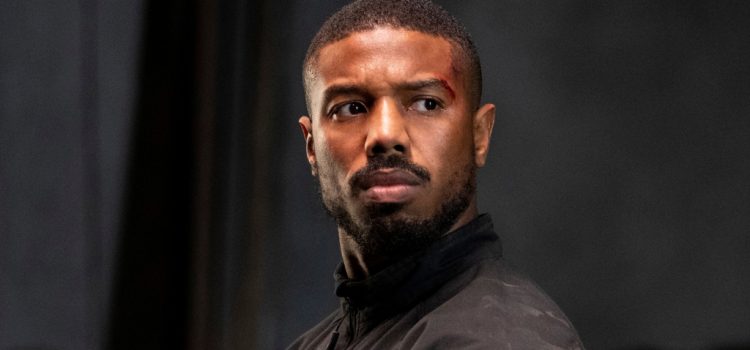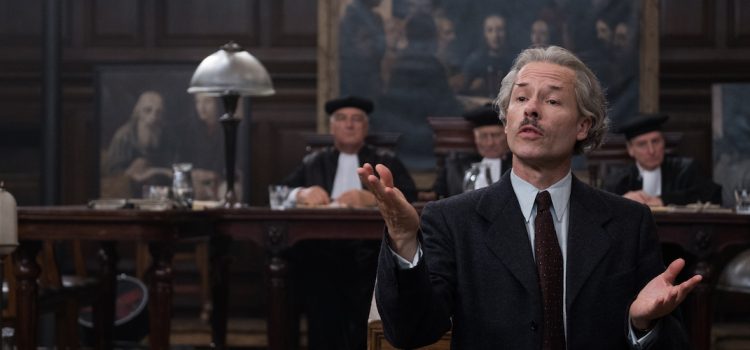By Alex McPherson
“Without Remorse,” roughly based on Tom Clancy’s 1993 novel, is a serviceable yet forgettable action film elevated by a committed performance from Michael B. Jordan.
We follow John Kelly (Jordan), a Navy SEAL chief who finds himself immersed in an international conspiracy with a gargantuan body count. After rescuing a CIA operative in Aleppo, Syria, and unexpectedly encountering Russian military forces, all hell breaks loose. Three months later, Russian FSB operatives brutally murder two SEAL team members who participated in the mission. They also execute Kelly’s wife, Pam (Lauren London), and unborn child. While Kelly is able to kill three of the operatives at his house, one escapes.
Mean-spirited CIA officer Ritter (Jamie Bell) and Defense Secretary Clay (Guy Pearce) want to brush the situation under the rug for fear of starting an international incident, but Kelly takes matters into his own hands. Thanks to the help of his superior officer, Lt. Commander Greer (Jodie Turner-Smith), Kelly gets the intel necessary to exact revenge without, well, much remorse or self preservation. After being arrested and branded a felon for his vengeful acts, he’s placed on a black ops team to eliminate those responsible once and for all. Copious bloodshed ensues, and Kelly eventually acquires the last name of “Clark.”
Worth watching if only for Jordan’s acting chops, “Without Remorse” ends up feeling predictable, dated, and shallow by the end credits — squandering an opportunity to give Kelly much depth, or present a storyline that isn’t swamped in clichés. That’s not to say there isn’t some entertainment value to be found here, however, as Jordan’s performance remains consistently engaging, and director Stefano Sollima knows how to stage punchy, visceral set pieces.
Indeed, even though “Without Remorse” fails to delve into Kelly’s psychology beyond the surface level, Jordan’s portrayal lends him a damaged, unhinged quality. Jordan convincingly sells the fact that Kelly has nothing left to lose and is ready to die for retribution over his family’s killing. He’s always a gripping presence onscreen, and we can infer deeper tensions from his body language alone, even if Taylor Sheridan’s script avoids any kind of real complexity in his character or the larger plot he’s embroiled in.
Similarly, side characters, particularly Turner-Smith, turn in decent performances, but they end up feeling quite plain. There’s little to latch onto emotionally across the board, and “Without Remorse” fails to make any kind of meaningful social commentary. The plot twists are easy to foresee, ending with patriotic sentiments that caused me to roll my eyes.
If only Sollima’s film had given us more time to grow attached to Pam before she’s unceremoniously riddled with bullets, or provided any unique spin on the “America vs. Russia” trope, then perhaps “Without Remorse” could have stood out from its military-obsessed competition. Alas, for all the film’s thematic failings, it still remains enjoyable, due to the slickly choreographed shoot-em-up sequences peppered throughout.
Jordan, ripped as ever, absolutely shines in these scenes. A brutal interrogation within a burning car, an underwater escape from a downed airplane, and a claustrophobic punch out in a jail cell stand out in particular. It’s too bad the final-act skirmishes feel repetitive and too video gamey to impress. They’re sometimes dimly lit and, reflective of other elements, feel generic.
As a precursor to more Tom Clancy films down the road, “Without Remorse” carries out its mission dutifully, but uncreatively. Jordan, holding the whole ordeal together with his jacked arms, deserves better.

“Tom Clancy’s Without Remorse” is a 2021 action thriller directed by Stefano Sollima and starring Michael B. Jordan, Guy Pearce, Jamie Bell, Jodie Turner-Smith, Colman Domingo and Lauren London. Rated R for violence, the movie runs 1 hr. 49 minutes. Streaming on Amazon Prime beginning April 30. Alex’s Rating: B-

Lynn (Zipfel) Venhaus has had a continuous byline in St. Louis metro region publications since 1978. She writes features and news for Belleville News-Democrat and contributes to St. Louis magazine and other publications.
She is a Rotten Tomatoes-approved film critic, currently reviews films for Webster-Kirkwood Times and KTRS Radio, covers entertainment for PopLifeSTL.com and co-hosts podcast PopLifeSTL.com…Presents.
She is a member of Critics Choice Association, where she serves on the women’s and marketing committees; Alliance of Women Film Journalists; and on the board of the St. Louis Film Critics Association. She is a founding and board member of the St. Louis Theater Circle.
She is retired from teaching journalism/media as an adjunct college instructor.


